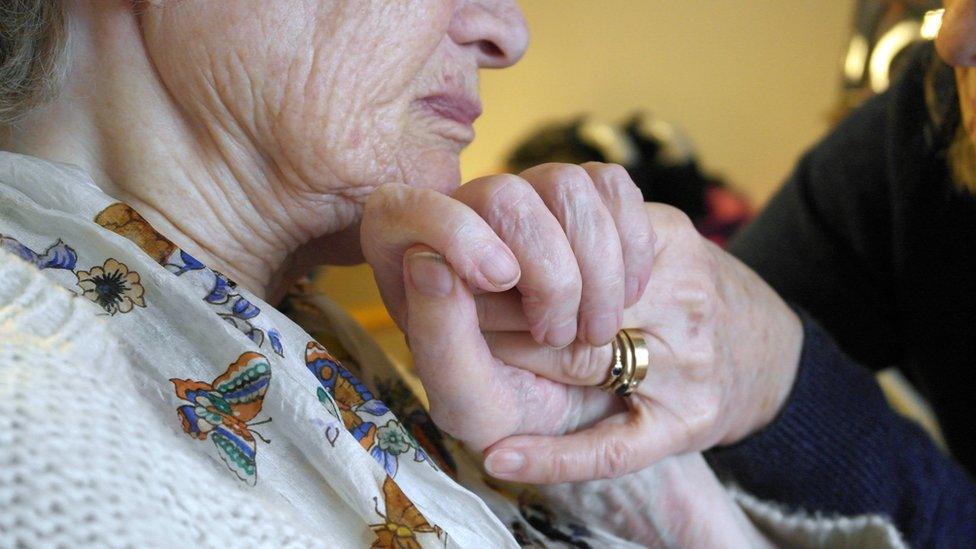Outsourcing care - can the sums add up?
- Published

It was a contract which was centre stage in the debate over outsourcing in the NHS in England.
The £800 million five year deal to run care for older patients and some other adult services in Cambridgeshire was controversial because private contractors bid for it.
Then a combination of two NHS trusts won it and now they have decided to throw in the towel. It looks a mess, and has raised many questions over the commissioning and contracting process.
The contract covered emergency hospital care, community and mental health for over 65s, end of life care and some other services for younger adults.
During the tender process, which began in 2013, there were protests because the bidders included private sector operators including Virgin and Care UK.
But the contract was eventually awarded to a partnership of Cambridgeshire and Peterborough NHS Foundation Trust with Cambridge University Hospitals NHS Foundation Trust. Opponents of outsourcing claimed that £1m had been wasted on a process which resulted in NHS services staying in the NHS.
Now the NHS consortium has decided after barely seven months that it can't make the sums add up.
Responsibility for the services will revert to the Cambridgeshire and Peterborough Clinical Commissioning Group (CCG) which awarded the contract in the first place.
The CCG says patient care will not be affected and there will be discussions about a "smooth handover of services".
There is no clarity as yet though on what happens to staff employment terms and conditions.
Unfair advantage?
Opponents of outsourcing have been quick to argue that the process is fatally flawed.
The GMB union accused the government and CCGs of failing to heed warnings and wasting money on the tendering policy.
The awarding of contracts by local NHS commissioners has proved to be high controversial. Critics will argue that the Cambridgeshire saga has underlined their case for abolishing competitive contracts and allowing core NHS providers to continue with their traditional roles.
Supporters of tendering accept that lessons have to be learned. They believe, however, that one deal going wrong should not invalidate the principle of awarding contracts linked to delivering agreed targets.
They have a suspicion that ministers were worried before the general election that the award of a high profile health contract to a private provider might be politically toxic.
The NHS partnership, its argued, was given an unfair advantage with suggestions it could borrow money cheaply from central government.
With one of the partners in the contract, Cambridge University Hospitals - which includes Addenbrooke's hospital - going into special measures because of its own financial troubles, the management of the elderly care contract must have become increasingly difficult.
With hindsight, it looks as if taking a role in such a contract was always going to be a challenge with so much pressure on the core services at Addenbrooke's.
The debate over outsourcing wont go away. A £1.2bn contract for cancer services and end of life care in Staffordshire, the largest of its kind in NHS history, is due to be awarded imminently after several delays.
It has proved highly controversial and with private sector involvement in one of the bidding groups the results of the tender will be closely scrutinised.
Proponents of outsourcing argue that pulling disparate services across a local health economy into a single arrangement with a contractor is good for patients as it provides a single point of contact and provides better value for the taxpayer.
But the Cambridgeshire saga hasn't helped their case and the political debate over health contracts has been reignited.